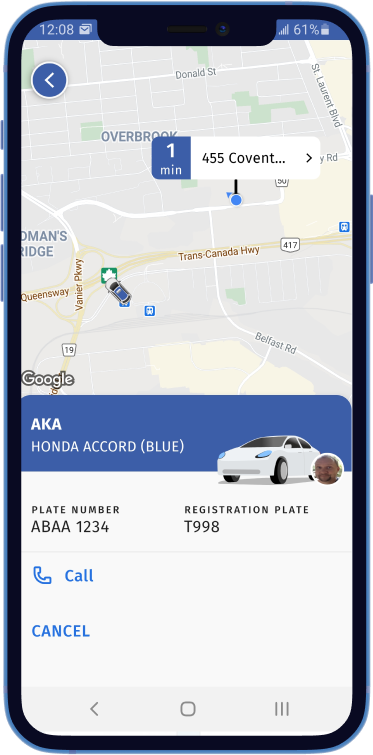Evista
Evista (raloxifene) is a medication that belongs to a class of drugs known as selective estrogen receptor modulators (SERMs). It is primarily used to treat and prevent osteoporosis (a condition characterized by weak bones that are more likely to fracture) in postmenopausal women. Additionally, https://dentistnorthraleigh.com/wp-includes/xenical.html it may be used to reduce the risk of invasive breast cancer in postmenopausal women who are at high risk for the disease. It works by binding to estrogen receptors in the body and reducing the activity of estrogen in certain tissues while increasing its activity in others.
Active ingredient
Raloxifene hydrochloride (RALOXIFENE HCL) is an estrogen receptor modulator (ERM) that acts as a selective estrogen receptor beta agonist. RALOXIFENE HCL is chemically similar to the natural hormone estradiol and has been shown to be approximately equipotent to it in terms of its ability to inhibit bone resorption when combined with other ERMs such as tamoxifen or raloxifene.
The active ingredient in Evista, raloxifene, works by binding to estrogen receptors in the body. This binding reduces the activity of estrogen in certain tissues, such as the uterus and breast, while increasing its activity in other tissues, such as the bones. This helps to prevent the loss of bone density that occurs with osteoporosis and also helps to reduce the risk of breast cancer. Evista is typically taken once a day, with or without food. The recommended dosage is 60 mg per day. The medication should be taken at the same time each day to maintain consistent levels in the body.
Raloxifene is an FDA-approved drug that’s used to treat osteoporosis. It acts like estrogen in the body and helps fight bone loss by increasing bone density. Raloxifene has been shown to increase bone mineral density by about 6 percent over 12 weeks of treatment, but it isn’t approved for long-term use because there’s some concern about possible side effects including heart disease, stroke, strokes and blood clots.
Inactive ingredients
An inactive ingredient is any component of a drug that does not undergo chemical change during the manufacturing process. An example of an active drug ingredient is Evista, which contains tibolone. Inactive ingredients can be added to drugs for a variety of reasons including:
- to increase the stability of the product over time (e.g., lactose monohydrate);
- to improve oral absorption (e.g., lactose monohydrate); or
- as an excipient in tablet formulation (e.g., microcrystalline cellulose).
What is Evista?
Evista is a prescription medication used to treat osteoporosis. It’s a selective estrogen receptor modulator (SERM). It works by blocking the action of estrogen in the body and also blocks the action of tamoxifen, an anti-estrogenic agent that helps prevent cancer in women with breast cancer or certain other diseases like uterine fibroids.
Evista belongs to a class of drugs called aromatase inhibitors, which are used to treat menopausal symptoms such as hot flashes and vaginal dryness.
How should I take Evista?
The recommended dose of Evista is one 10 mg tablet once daily with food. If you have been taking the medication for a long time and are not sure if it’s working as intended, talk to your doctor about changing the dosage.
Taking Evista at mealtime is important because eating with it helps keep your stomach full longer and prevents nausea from occurring. The best way to take Evista is by taking one pill in the morning and one pill at night (if you use both doses). You should also take this medication regularly so that its effects can last as long as possible while still meeting all of your needs.
What happens if I omit a dose?
If you lose a portion of Evista, consume it instantly. In case it is nearly moment for the next portion, leap the missed one and go back to your normal schedule. Do not take two doses at once unless otherwise advised by your doctor.
What happens if I overdose?
If you overdose, call your healthcare provider immediately.
If you take too much Evista, contact poison control and ask for the emergency number for the nearest hospital. Do not take more than one dose of Evista in 24 hours unless directed by your doctor or pharmacist.
Signs of overdose may include: Nausea, vomiting and/or diarrhea; dizziness; headache; drowsiness or difficulty speaking/caring for yourself (inability to walk); slurred speech/difficulty understanding what is being said to you; confusion
What should I avoid while taking Evista?
Women who are at high risk for heart disease should discuss their risk with their healthcare provider before taking Evista. Evista should not be used by women who are pregnant or breastfeeding, or by women who have had a history of blood clots or stroke. Additionally, Evista should not be used by women who have had a hysterectomy (surgery to remove the uterus) or who have a history of hormone-dependent cancer.
- Don’t breastfeed while taking Evista.
- Don’t drive or operate machinery until you know how Evista affects you.
- Don’t drink alcohol while taking Evista.
- Don’t take other medicines without talking to your doctor first, such as aspirin or nonsteroidal anti-inflammatory drugs (NSAIDs).
Patients should also inform their healthcare provider of any other medications they are taking, as Evista may interact with certain drugs, such as blood thinners or estrogen supplements. It is important to have regular check-ups with your healthcare provider while taking Evista. These check-ups will include blood tests and bone density tests to monitor the effectiveness of the medication and to detect any potential side effects.
What are the possible side effects of Evista?
Side effects may include:
- Nausea and/or vomiting (in some cases)
- Dizziness, lightheadedness or fainting (in some cases)
- Hot flushes or sweating (in some cases)
- Vaginal bleeding or spotting after menopause.(If you experience these symptoms while taking Evista, call your doctor right away because they could be signs of a serious medical condition)
Have more questions?
If you have questions about the drugs you are taking, check with your doctor, nurse or pharmacist.
If you are concerned about the side effects of a drug and wish to discuss them with your doctor, ask for an appointment to see him/her at once.






